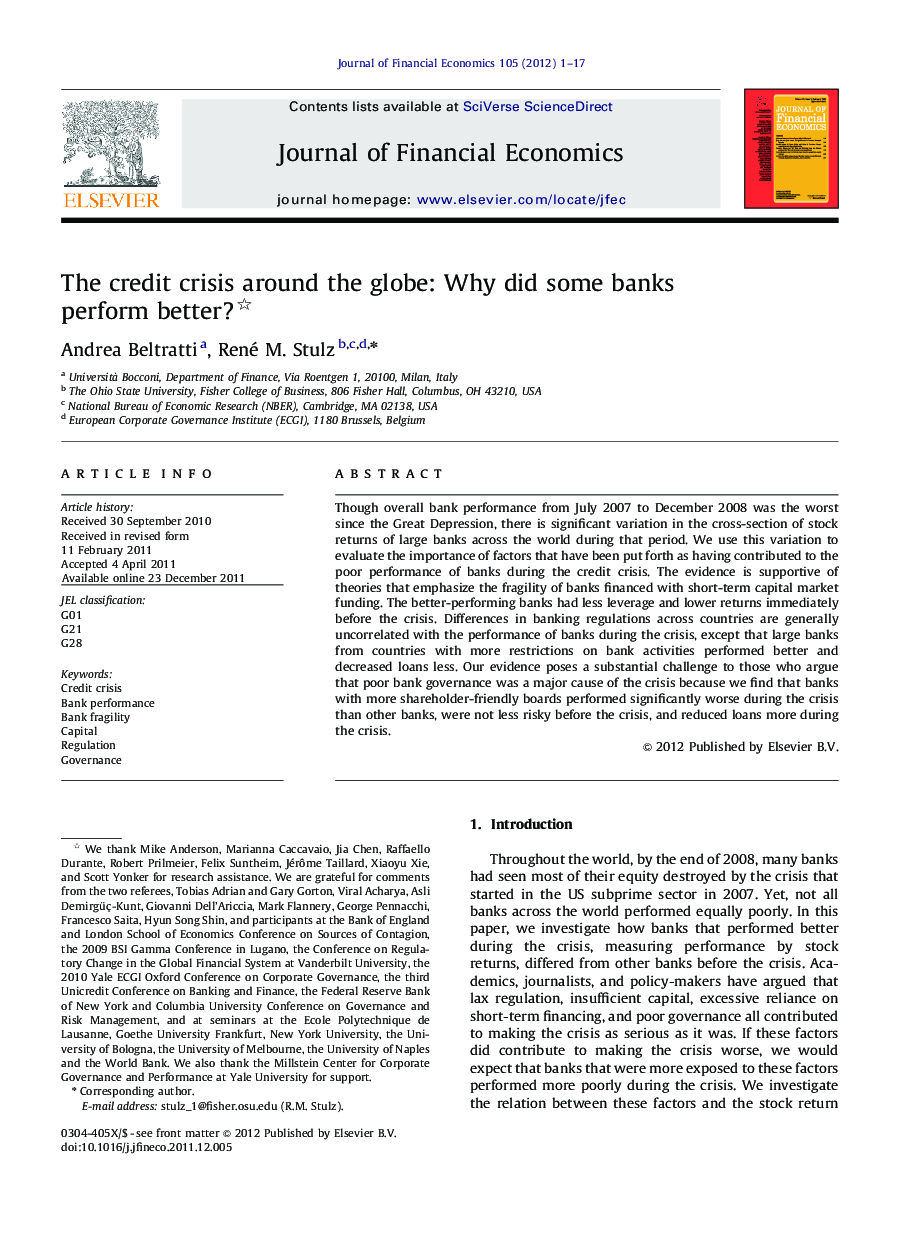| Article ID | Journal | Published Year | Pages | File Type |
|---|---|---|---|---|
| 960336 | Journal of Financial Economics | 2012 | 17 Pages |
Though overall bank performance from July 2007 to December 2008 was the worst since the Great Depression, there is significant variation in the cross-section of stock returns of large banks across the world during that period. We use this variation to evaluate the importance of factors that have been put forth as having contributed to the poor performance of banks during the credit crisis. The evidence is supportive of theories that emphasize the fragility of banks financed with short-term capital market funding. The better-performing banks had less leverage and lower returns immediately before the crisis. Differences in banking regulations across countries are generally uncorrelated with the performance of banks during the crisis, except that large banks from countries with more restrictions on bank activities performed better and decreased loans less. Our evidence poses a substantial challenge to those who argue that poor bank governance was a major cause of the crisis because we find that banks with more shareholder-friendly boards performed significantly worse during the crisis than other banks, were not less risky before the crisis, and reduced loans more during the crisis.
